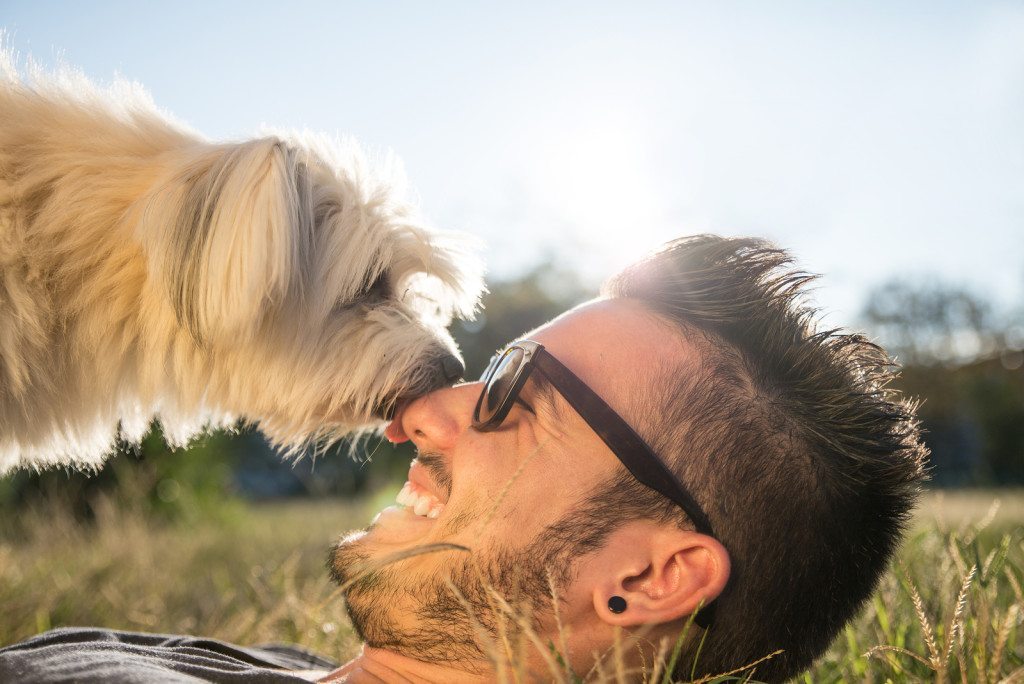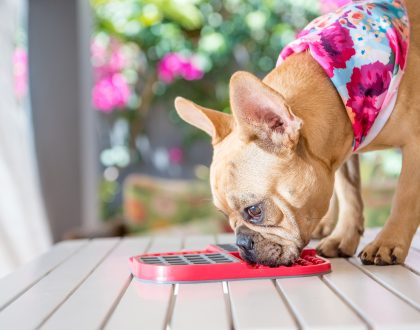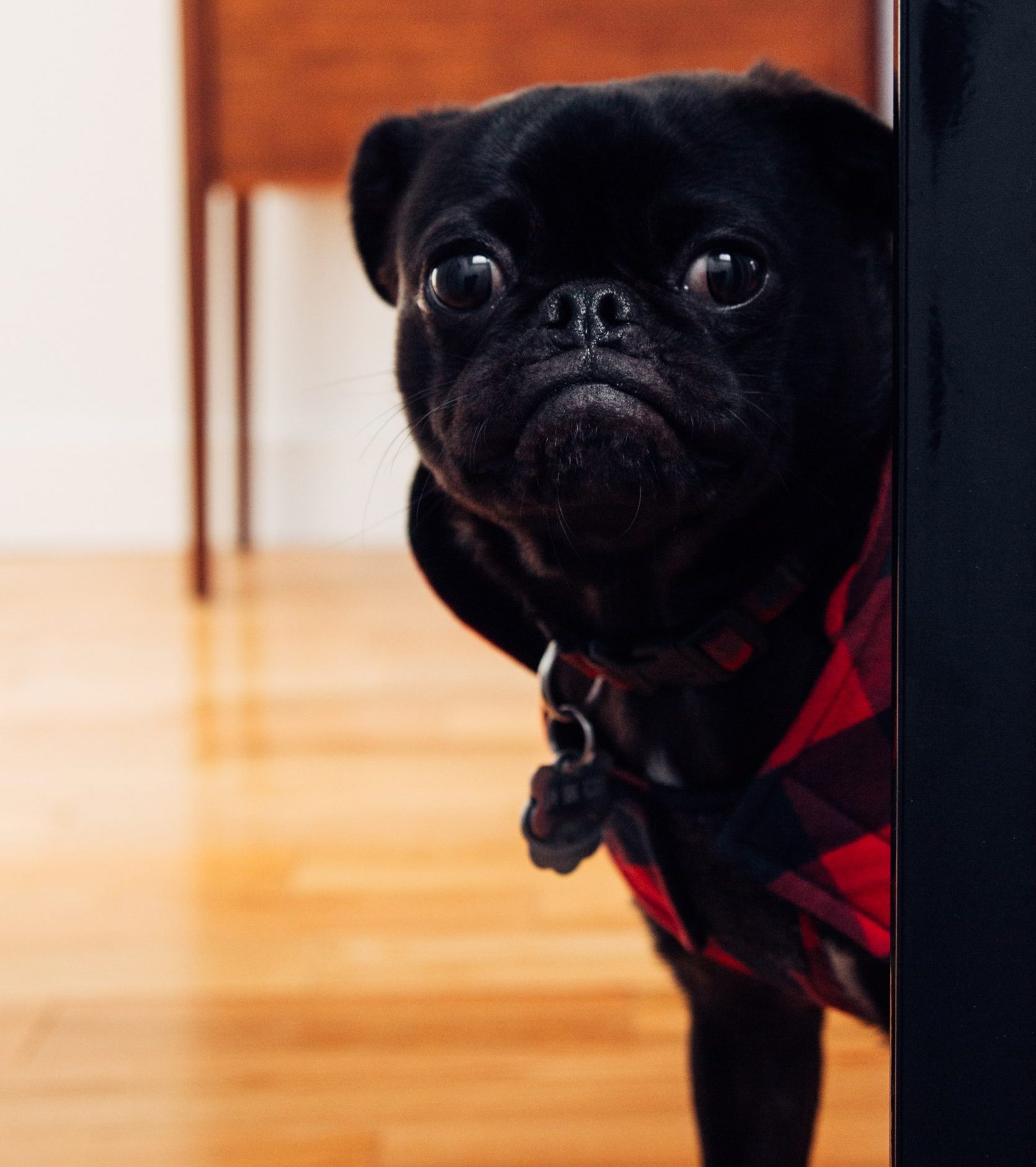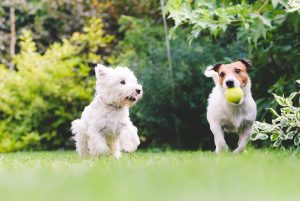Socialising Your Dog for Boarding

Socialising Your Dog
Socialising your dog is very important before you leave him in care. Stress can be an issue when leaving your dog for boarding but it can be managed. It’s all in the socialisation.
The age factor
Anyone who has had any experience with raising dogs will tell you that it’s absolutely essential to socialise from puppyhood. Starting early, while your pooch is still easily manageable and impressionable, definitely affects his or her disposition and interaction with you and other people later on.
The fear period
The fear period, lasting up to his or her 12th week of age, is a crucial time wherein all new experiences will leave a deep impact on their behaviour. Experiencing negative and traumatic events may result in a fearful, defensive dog who is unwilling to try unfamiliar things. Positive experiences, on the other hand, can greatly benefit their trust on humans and boost their confidence as they grow older.
Tips for helping your pup to feel more confident
If you have a young doggo, these are wonderful exercises that you can do every day that are simple and almost costless:
- Exposure to different places – parks, houses, play areas etc. (do this ONLY if your pup is vaccinated and protected from diseases)
- Exposure to different textures – walking on sand, tiles, cement, wood, grass, soil, mud
- Exposure to different sounds – start with simple things like music at home or even audio from the television. As he or she gets used to the new experiences, you can up the ante and bring the exercises outside where he or she can hear vehicles, crowds and other louder sounds.
What you need to notice is if your puppy is exhibiting any sign of distress while you’re moving along with your exercises. Turn a negative experience around and prevent any lasting fearful effect by distracting your pup.
Practise name recall early on so you can easily catch your pup’s attention when he or she starts to show stress. Reward his focus on you by giving treats or showering with praises. The tone of your voice and the association with a good yummy morsel will ease his nerves and help him recover.
NEVER ever cuddle, stroke or hug a scared pup. Doing so gives your pup the message that being scared is okay and you’re actually rewarding the fear. Only give rewards of food, toys or affection when he’s already been distracted and his focus is on something that he or she does not fear.
Obedience training
Obedience training is also a great way of socialising your dog. More than teaching discipline and the basic sit-down-stay-heel commands, you can also incorporate interacting with other humans.
Once your puppy has the hang of his or her training, you can try having him practise with other people like your friends, people at the park, your co-workers—everyone who’s willing and knowledgeable (no use asking a person who doesn’t like dogs). Enrolling in a puppy class will also help him get to know and not fear other dogs.
The consistency that the training brings will help your puppy associate other people with something good—that rewards and good experiences can come from other humans. Doing what he knows best and being able to ‘succeed’ with others helps boost his confidence and ease the transition when he’s up for boarding.
Oldies can still be goodies
But let’s face it—you may not have the opportunity of socialising your dog when they are an 8-week-old. You may adopt an adolescent far beyond the fear period. Or, an adult who’s been rehomed. Or even an old-timer who needs to be handled with care and patience. Don’t get discouraged.
Socialising your dog can happen at any age if you’re willing to put in the work. Whether you’re starting from square one with an unsure pooch or getting there but just not quite there yet, there are lots of things you and your Fluffy can do to overcome social challenges for when you need to go for dog boarding:
- Gentle and gradual exposure – it’s never a good idea to rush into things and expect your wallflower to be a social butterfly by the end of the play session in the dog park. You can ease him into it by taking leisurely walks daily, eventually positioning yourself closer to other people and animals. You can just sit with your pooch on a lead at the park and people (or dog) watch until you see that your buddy has relaxed in the environment.
Signs of stress
Watch out for signs of stress:
- Excessive drooling
- Whale-eye (looking sideways; you can see the whites of the eyeballs)
- Panting
- Closed mouth
- Rigid posture
- Stiff, straightened tail
- Supervised playdates – find another pet parent or friends who can just hang out and chill. It teaches your pooch that it’s okay to relax with people and animals other than mum or dad. It also encourages calm behaviour in other environments.
- The main takeaway: do NOT rush. Each dog has his or her own turnaround period. What’s important is investing the time and effort to let your dog acclimatise. Some may take a long time, and some may not.
The Art of Separation
When the time finally comes to leave your furkid in the care of your dog minder your next task is to create a positive experience while he’s at his dog boarding environment.
There are many options for minding and boarding. When you find your ‘match’—a place that Bruno can call his home away from home – it still may be a bit of an adjustment.
It actually helps to teach your pooch that it’s okay to be away from you. Being away from the person they’ve so strongly bonded with can cause any of the following:
- Lethargy
- Depression
- Lack of appetite
- Little to no response to training or play sessions
Socialisation may not entirely eliminate these effects on a dog who suffers separation anxiety. However, you can ease the transition and continue socialising him or her even during boarding by doing these:
- Providing familiar objects – bowls, toys, his own bedding
- Asking the minder to follow the daily routine – feeding, walking, washing, etc.
- Having a meet and greet before boarding –that way your pup won’t be seeing a complete stranger when you drop him off
- Rewarding the experience – make the stay with the dog minder positive by incorporating ‘reward sessions’ where your pooch can practise his skillset and be rewarded with lavish praises and yummy treats.
See also socialisation tips when getting a new dog.
Looking for dog boarding for your dog. We offer a personalised service where we interview all dog minders face to face and do the matching for you.
Scroll down to subscribe to our emails with interesting information about dogs. (Don’t worry, we promise not to flood your Inbox with too many emails.)
Recommended Posts

Lickimat – 20% OFF
February 27, 2024

Small Dog Syndrome
April 23, 2021

7 Tips To Prevent Your Dog Marking Their Territory
March 05, 2021

